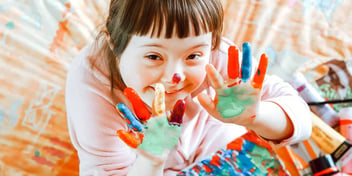6 Things Adult Children Hope Their Parents Do after Divorce

The gray divorce rate has skyrocketed. What does this mean? Over a third of divorcing individuals today are older couples over the age of 50. And as our population ages and enjoys a longer life expectancy, researchers have predicted that gray divorces will triple by 2030.
Society typically focuses on how divorce impacts minor children, but that’s not the only age group affected. Adult children also experience feelings of loss and confusion during their parents’ divorce.
While it may seem like your adult children are better equipped to deal with your divorce as adults, they can also suffer their own challenges. There are ways you can help them cope.
1. Acknowledge and respect your adult kids’ feelings about the divorce
Divorce is hard on families no matter how old the children are. An adult child will have a very different perspective and feelings about your divorce at midlife than if they were younger. In fact, they might not be quite as resilient.
Don’t presume that your kids will completely understand your divorce. After all, this significantly changes their lives, too. As their parents, you and your spouse were keepers of their past as well as the family’s intergenerational future. You may be grandparents to their children. You may still own the place where they grew up. You were part of a lifetime of holidays and vacations, good times and bad.
What happens to this emotional framework when you and your spouse part company?
You don’t have to reconcile with your ex for your kids, but you can acknowledge how they’re feeling. Being “seen” can go a long way toward helping adult children heal.
Older people are getting divorced more often. Read more about grey divorce here.
2. Refrain from putting them in the middle; don’t make them choose sides
Adult children are often unwittingly thrust into the role of their parents’ mediators or sounding boards. Married couples facing divorce often need mediation, but your adult kids should not be the mediators.
Although you may feel overwhelmed by your divorce, putting the kids in the middle – or expecting them to take sides – isn’t fair to anyone.
If you find yourself over-confiding in them, stop. Remember that your relationship with your spouse is very different from your children’s relationship with them. The grisly facts about an affair … the anger about not getting to keep the vacation home … or whatever the conflicts may be, these details are best kept to yourself.
The person you’re divorcing is your child’s other parent. Your child still deserves a positive relationship with that person.
3. Communicate clearly about post-divorce changes: new addresses, financial adjustments, other family dynamics
Your divorce will demand significant adjustments, from moving from the family home to financial and emotional reconstruction.
You may need to sell their childhood home or the cottage where you spent all their summer vacations. You may need to take some time for yourself instead of being the babysitter-on-call. The kids need to understand that you deserve a life outside the context of their needs.
Transparency about these changes, without placing blame, can help your adult kids set their expectations about the present and future.
Do you need information about what to do with retirement accounts or retirement funds? Read our article, QDROs: Dividing Retirement Plans in Divorce.
4. Respect their personal space and boundaries
A shift in family dynamics often blurs personal boundaries. You are suddenly alone and unsure what to do with all that time. But your adult children have busy lives of their own. They are not your peers and shouldn’t be a substitute for your social life or therapist.
While leaning on your adult kids for support is natural, respecting their boundaries is essential.
Avoid making spontaneous visits to unload your emotional baggage at dinnertime. Curtail the phone calls throughout the weekend because you’re lonely. Make sure your social media posts don’t reveal information they don’t want to know.
Call a friend, find a support group, or get the help of a therapist instead. Don’t put the load on your kids.
5. Suggest getting professional help with their emotional struggles
Adult kids can find themselves struggling with their own mental health during their parents’ divorce. Some feel a deep sense of loss and even abandonment. While you are sorry that your child is taking your divorce so hard, your own challenges and well-being demand your attention.
Fortunately, there are support groups and therapy models designed for adult children struggling with their parents’ divorce. Getting outside support or professional help allows your child to no longer feel alone in their pain and can help jumpstart their healing.
6. Model healthy coping
Even as adults, your children watch and learn from your behaviors. They continue to look to you for cues on relationships and coping strategies.
If you can demonstrate strength and resilience through your divorce process, it can serve as a valuable lesson for your kids. How you react and implement coping mechanisms can provide a template for them in their own relationships and challenges.
No matter how old they are, your marriage was a huge part of your children’s lives. It shaped how they think about relationships, marriage, and family. It will now color their perception of divorce.
If you can, leave them with an impression of the strength and courage that will be available to them as they age, no matter what life has in store.
If you’re navigating a divorce as an older adult after years of marriage and raising a family together, appreciating how it can affect your adult children is important. At Hello Divorce, we are here to support you and your family as you move through your divorce and beyond. Schedule a free call to learn more.
Frequently Asked Questions About Adult Children and Divorce
How does divorce affect adult children?
Even grown children can feel sadness, conflict, or uncertainty. They often hope for stability and respect between parents.
What do adult children want most from divorced parents?
They want parents to stay civil, avoid putting them in the middle, and create peace instead of conflict.
Should parents share personal details of the divorce with adult children?
No. Adult children usually prefer honesty without oversharing and don’t want to be burdened with disputes.
How can divorced parents support adult children emotionally?
Validate their feelings, respect their independence, and show up for their milestones without adding stress.
Do adult children want their parents to co-parent after divorce?
Not directly, but they do want respectful communication at family gatherings and events.
What role do boundaries play after divorce?
Boundaries are crucial. Adult children don’t want to be leaned on as confidants or pressured to take sides.
How to Support Adult Children After Divorce
Respect your child’s independence
Allow them to live their own lives without making them your emotional support system.
Avoid negative talk about the other parent
Protect their relationship with both parents by staying neutral.
Show up for important events peacefully
Be present at family milestones without creating tension.
Validate their feelings
Acknowledge that even as adults, they may still struggle emotionally with your divorce.
Set and respect boundaries
Don’t overshare or expect them to take sides.
Model respectful co-existence
Keep interactions with your ex civil to reduce family stress and reassure your children.



